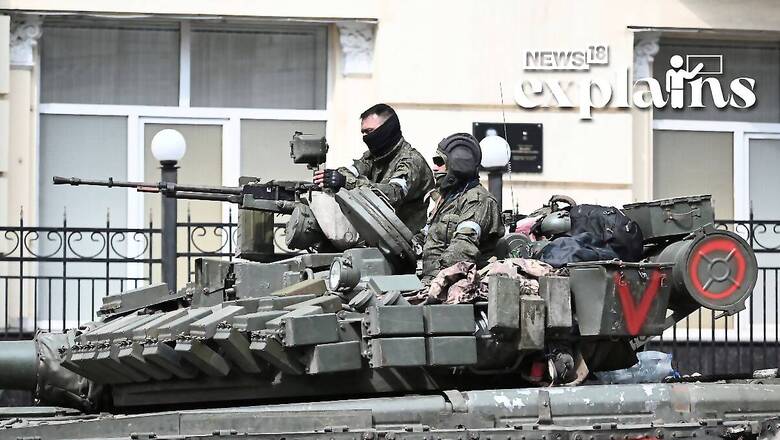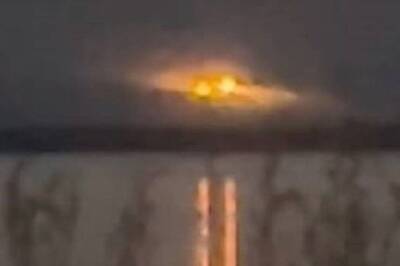
views
The armed rebellion against the Russian military, although short-lived and lasting less than 24 hours, caused significant disruption and confusion among the enemy forces.
Let’s understand what exactly happened?
On
FRIDAY
, Yevgeny Prigozhin, the founder of Russia’s Wagner mercenary force, instructed his troops stationed in Ukraine to march towards Moscow. He characterized this movement as a “march for justice” rather than a military coup. Prigozhin alleged that the conflict in Ukraine was based on falsehoods and called for an end to what he perceived as the wrongdoing of the Russian military leadership. He accused the Russian Defense Minister, Sergei Shoigu, of ordering the concealment of the bodies of 2,000 deceased Wagner fighters, according to reports.
In response, Russia’s federal security service initiated criminal charges against Prigozhin for inciting armed rebellion. The Kremlin spokesman confirmed that President Putin had been informed, and appropriate actions are being taken.
General Sergei Surovikin, Russia’s deputy commander of the Ukraine campaign, urged Wagner fighters to abandon their opposition to the military leadership and return to their bases. He posted a video message on the social media platform Telegram, calling for them to cease their activities. Surovikin warned that the enemy was eagerly anticipating a deterioration in Russia’s internal political situation.
Security has been heightened in Moscow, with increased measures in place at government buildings, transportation hubs, and other important locations. Military vehicles were observed patrolling the streets of the city on Friday night.
Early on
Saturday
morning, Yevgeny Prigozhin, the leader of the Wagner group, announced on Telegram that his men had crossed the border from Ukraine into Russia. They had entered the Rostov region, located along the Ukraine border, and expressed readiness to confront the Russian military. Prigozhin threatened to eliminate anyone who obstructed their path.
The governor of the Rostov region, Vassily Golubev, advised residents to remain indoors and stay calm for their safety. He assured them that law enforcement agencies were taking necessary measures to protect the area.
Prigozhin claimed to be at the headquarters of Russia’s Southern Military District in Rostov-on-Don, accompanied by senior generals. He demanded a meeting with the chief of the general staff and Defense Minister Sergei Shoigu. Prigozhin warned that if his demands were not met, they would block Rostov and proceed towards Moscow.
A counter-terrorist regime was imposed in Moscow and the surrounding region, according to Russia’s anti-terrorist committee. The Russian Defense Ministry issued a statement characterizing the Wagner fighters as deceived participants in a criminal venture orchestrated by Prigozhin. They assured the fighters of their safety if they surrendered to Russian forces.
In a televised address, President Putin acknowledged the role of the Wagner fighters in the liberation of the Donbass region in Ukraine but condemned Prigozhin’s revolt as an act of betrayal against Russia.
Afterwards, a convoy of approximately 5,000 Wagner Group fighters was reported to be advancing towards the outskirts of Moscow, according to Reuters. Moscow Mayor Sergei Sobyanin urged citizens to limit travel within the city, and he declared Monday as a non-working day (with exceptions) to minimize risks.
Video footage showed Wagner vehicles in convoys less than 500 kilometers away from Moscow. However, later reports indicated that the Wagner forces began pulling out of the district military headquarters in Rostov-on-Don on Saturday night. Yevgeny Prigozhin, the leader of the Wagner Group, was seen leaving the military headquarters in a video posted on Telegram.
Belarusian President Alexander Lukashenko announced that he had reached a deal with Prigozhin to de-escalate the situation. Prigozhin agreed to return his forces to their bases in order to avoid bloodshed. The Russian government stated that Lukashenko had offered to mediate the situation with Putin’s agreement, as he had a personal acquaintance with Prigozhin for about two decades.
According to the Russian government, the criminal case against Prigozhin for armed mutiny would be dropped. Prigozhin would relocate to Belarus, and the Wagner fighters who participated in the “march for justice” would not face any consequences, acknowledging their past service to Russia. The details of the deal were not extensively disclosed, and Kremlin spokesperson Dmitry Peskov declined to provide further information on the concessions made to Prigozhin, apart from guarantees of safety for him and his troops.
AFP, Associated Press, Reuters contributed to this report




















Comments
0 comment